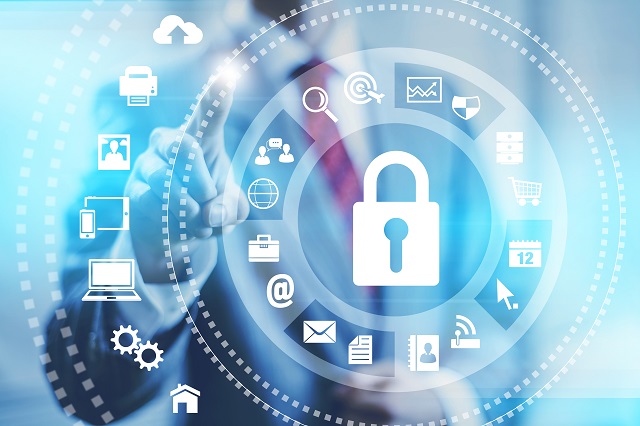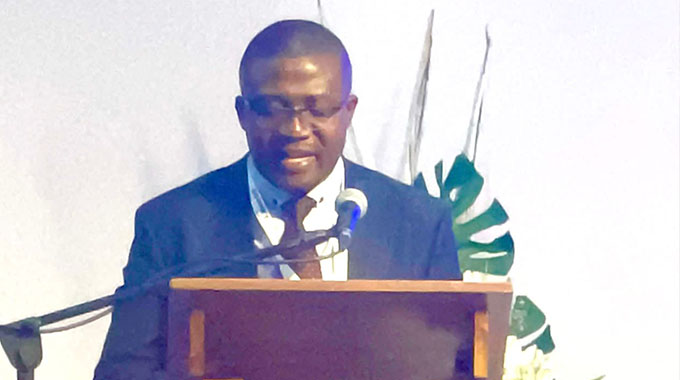Cyber security: More opportunities than threats

Robert Ndlovu
WE live in very interesting times where and when threats to personal, social, national, civil rights and many more are being affected by the exponential upsurge of ICT technologies. Last week I attended a Cyber Law seminar organised by the Law Development Commission. All the three proposed bills were discussed and contributions, amendments and suggestions constituted the theme of the two-day seminar held at a local hotel.
I believe in converting threats into opportunities and half opportunities into fully blown ones.
You will note that I deliberately try to focus more on technical issues and leave qualified lawyers, politicians, activists to focus in their areas with reference to the cyber laws. The drafts bills in discussion were: the Computer Crime and Cybercrime Bill, Data Protection Bill and the Electronic Transactions and Electronic Commerce Bill. We discussed opportunities that arise as a spin off from these draft bills which one day will become laws.
I have always known the type and nature of challenges that we were going to face some five years ago as more and more people have access to the information highway. The increased digital inclusion is related to the increased mobile penetration, cheaper smart phones, increased data speeds and the average age group of mobile and computer users.
The exponential increase in the usage of ICT technologies has NOT been paralleled by any meaningful manpower skills development. This is where the problem is. As long as Zimbabwe does not appreciate and invest heavily in research and development in ICT, we will always play the catch up game. A good example is the mobile network sector which has been reaping very handsome voice revenues but over night entered WhatsApp and the GSM voice revenues are heading southwards. My point is that Zimbabwe has no adequate technical capacity to deal with the threats and opportunities that are associated with this.
Looking at the Computer and Cyber Crime Bill alone I was left wondering how this will be affected given that no meaningful effort has been made to train law enforcement, technicians, lecturers in cyber security, forensics and the like. No offence here — most of our police officers are computer illiterate. How do we expect them to investigate a computer related crime when the closest they have brushed shoulders with technology is WhatsApp and Facebook. I am aware that four years ago authorities at ZRP wanted to come up with a cyber security centre modelled around the Zambian (ZICT) model supported by ITU. This did not take off. Suddenly we are running around like chickens without heads to build a national cyber security centre over night, which they say will be under the State Security Ministry.
I have issues with that. For starters who will man the centre since Zimbabwe has NO certified Mobile Forensics Analyst? Zimbabwe has few qualified and certified cyber or digital investigators.
No training is needed at all to seize a cell phone or computer suspected to be containing information, which might help solve a criminal case. We need an ICT approach not a state security approach. State security, defence and intelligence can always form their own unit to deal with matters of national security and leave civic society issues with police. This is international standard practice. Besides are these fellows aware that stuff is now stored in the cloud? How do you seize data located at a server in Iceland?
Digital evidence — the problem is the admissibility of digital evidence in court. Digital evidence can easily be manipulated. For example I can send you a text message from your ex to your wife and say bad stuff. Also we can make phone calls appear to be coming from Singapore to your Zimbabwean number and thereby misrepresent facts. My point is that before people start hallucinating about laws we must prepare the resources and skills to deal with ICT technologies, which bring forth opportunities.
After an officer seizes an iPhone, which is implicated in a crime scene, the burden of proof lies with prosecution to prove to the court that the pictures, messages, call logs and even videos were not tempered with. The investigation process must have a clear chain of custody of the device.
This calls for special tools that can analyse and recover deleted data from the devices. Availability of deleted files can affect the outcome of a criminal case. Opportunities include the training of law enforcement in cyber and computer tools to curb identity theft, fraud, harassment, human trafficking amongst others. Our universities must move with the times and start including hands on courses in their teaching. Zimbabwe can export these skills beyond its borders unless you are still trapped in the mentality that only tobacco is a major forex earner. Issues to deal with cyber and computer security must remain under the Ministry of ICT, Postal and Courier Services under the direction of Potraz.
The latter organisation has been involved in telecoms for decades. State security, defence and other interested stakeholders can NOT lead this one. They must be represented in this planned Cyber Security Centre but cannot lead it as they have no technical capacity to do as like specialists in their own areas. Zimbabwe needs to equip its own people with high end technical skills. This idea of tendering out technical jobs to foreign companies is caused by lack of technical skills and of course corruption. ICT security industry pays well — very well. From securing networks, protecting cyber space, tracking fraudsters and also protecting civil liberties. No one has a right to snoop into my computer just to see what I am typing. So an opportunity exists in data protection and encryption to protect individuals, corporations from industrial espionage and organisations alike.
It must be noted that the term cyber terrorism has been wrongly used in Zimbabwe because of lack of knowledge. This is one consequence of not investing in skills and manpower development.
This results in senior Government officials making embarrassing statements.
I know I have to mention this one — social media. To those who use it for whatever purpose the bottom line is that you must be able to say what you have posted on twitter in person and public. Posting stuff to express your opinion about any issue is NOT a crime. It becomes criminal if you use that medium to ignite violence and anarchy. What I have written here I can repeat in a pub or shopping mall. Freedom of speech comes with responsibilities. Three months ago we started a digital hub in Bulawayo to try and bring like minded people (youth) together to create opportunities for themselves and stop being cry babies.
I am pleased to announce that our membership now stands at around 50 and because of the opportunities around us soon we will be launching a Cyber Security Training Centre and Laboratory.
Did you know that one of the reasons why Google cannot co-host their servers in some African countries is that “we” do not have adequate data security implementations necessary for privacy? Have you ever wondered why most top government or corporate officials use Gmail or Yahoo as their email service of choice? — (077) 600 2605; ndlovu @ ymail.com











Comments